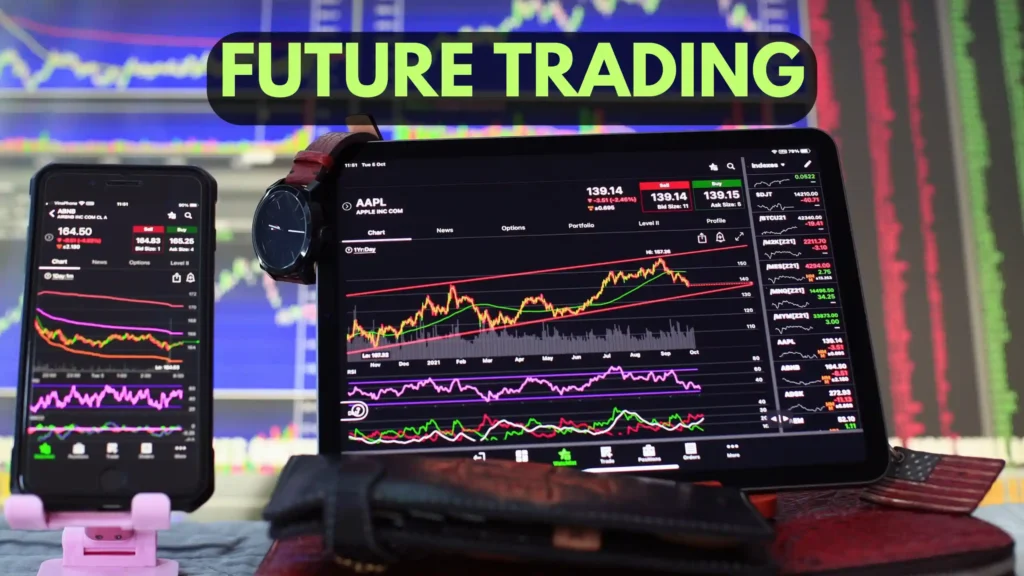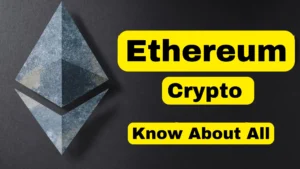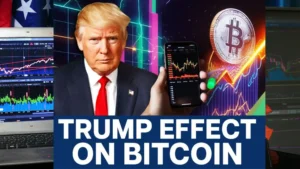You know that you can earn a lot of money from the stock market. And based on our previous videos on the stock market, you have also begun to understand that it is possible to earn and lose money in this market. Yes, but due to the right strategies and patience, profit can be gained.

And in the desire to earn more without knowledge, everything can be lost. So you must have also learned about this stock market that only by buying and selling shares can you take advantage of it.
There are many other ways to earn money and increase it. Like option trading. If you have not seen the video based on it, then do watch it. You will benefit a lot. And the trading we are going to talk about today is also very special like option trading. It is a trading that helps you to earn a little complex and a lot of money.
Because its name is futures trading, which is a derivative trading like option trading. In derivative trading, you bet on its real value without buying anything. This thing is called underlying asset. And it can be something like share currency.
If your guess is right, then you gain profit. And if the guess is wrong, then the money can go down. Buying a share is buying a share of the company. Whereas, without buying a share in the derivative, it is only bet on the value of the share. This derivative trading is mainly of two types. Option trading and futures trading.
today we are going to know about futures trading in detail. In which you will know
- what is futures trading?
- How is it different from option trading?
- What is the difference between stock trading and futures trading?
- Which investors are suitable for this trading?
- What are the benefits of this?
- And what are the risks in this type of trading?
To know a lot about futures trading, staywith us till the end in this Article.
👉 what is futures trading
So futures is a type of financial contract. In which a bet is placed on the future price of an underlying asset such as stock, gold and oil, without buying it. In this, you will decide that in the future, at a fixed date, at a fixed price, you will buy that asset or sell it.
So the price at which you promise to buy or sell that asset is called the strike price. And for this promise, you have to give a small amount to the broker, which is called the margin. This is a type of security deposit.
There is also an expiry date of the futures contract on which this contract ends. And on that day, you will have to buy or sell that asset.
👉 different from option trading
For example, if you think that the price of gold will increase next month, then you buy a futures contract, which means that you have agreed to buy gold at a fixed price next month.
Here gold is an underlying asset. Where in option trading, you are not obliged to use the underlying asset, that is, it is not necessary that you buy or sell that asset. Whereas in futures trading, you have to buy or sell that asset at a fixed time at a fixed price. You cannot deny it.
That is why in comparison to futures trading, option trading is considered comparatively less risky and more flexible.
👉 difference between stock trading and futures trading?
Similarly, if we look at the difference between stock trading and futures trading, then both are associated with the stock market. But still there is a lot of difference. In stock trading, you buy a company’s stocks and buy their shares. Whereas in futures trading, you will buy a contract in which you will only bet on the price of an asset in the future.
Risk is less in stock trading and it is preferred for long-term investment. Whereas the futures contract will expire after the expiry date and there is a lot of risk in it. That is, if you have bought a company’s share, then you are doing stock trading.
But if you have bought a contract in which you have agreed to buy that company’s share at a fixed time at a fixed price in the future, then it will be futures trading.
Futures trading is done on the stock exchange, and India’s two major stock exchanges are NSE ( National Stock Exchange ) and BSE ( Bombay Stock Exchange). Through these exchanges, different types of futures contracts such as index futures and commodity futures are traded.
In this way, any 18-year-old person can do futures trading in India who has Demat and trading accounts. But due to its risky nature, futures trading is suitable for those traders who like to do trading at high risk in the short term. Also, those who have a good understanding of the market and those who have a margin amount available for this trading.
👉 Types of futures trading
After knowing all this about futures trading, now we know about its types. So it has two main types.
- index futures
- commodity futures
First, let’s know about the index futures, for which it would be better to understand the meaning of the first index.
👉 what is ndex
So the index is a group of shares of some selected companies that represent the share market. It is used to measure the performance of the market. The index tells whether most of the companies in the market are doing well or bad.
If the index is increasing, it means that most of the companies are performing well. And if the index is decreasing, then the performance of the companies is not good.
Nifty50 and Sensex, you must have heard the names of both. These are both indexes. In Nifty50, the shares of India’s top 50 companies are included. And in Sensex, the shares of 30 big companies are also included.
Which are the top companies listed on BSE. So when the price of the shares of these companies increases, the price of the index also increases. And when the price of the shares of these companies decreases, the price of the index also decreases.
✍️ index futures
After knowing the index, let’s talk about the index futures. So this is a kind of contract on which the price of Nifty50 or Sensex, like the index of the share market, is estimated. A stake is placed on it.
In index futures, the price of the future time of any index of the share market is put at stake.
It works in such a way that you estimate whether the price or value of the index will increase or decrease. According to this, you buy or sell the index futures contract in a certain number. The contract also has a fixed expiry date. If your estimate is correct on the expiry date, then you earn a profit. Otherwise, you have to bear the loss.
For example, suppose you think that the Nifty50 index will increase next month. You buy 100 contracts of Nifty50. If the price of Nifty increases, you will be in profit. And if the price decreases, you will have to bear the loss.
In the index future, you will bet on the group of top companies, i.e. on the index. So in this case, if the market increases, you will win. And if the market falls, you will have to face the loss with a strong shock.
By using it, you can get a chance to earn more money in less time. And this is one of its qualities. But it is for high risk because if the estimate is wrong, then all the money is lost. It would be better to really call it a stake. And it is natural to have more risk in the stake.
👉 2. commodity futures
Now let’s talk about the second type of commodity futures of future trading.
Which is such a contract in which you can stake on the price of any raw material such as gold, oil or wheat in the future. You should know that metals such as gold, silver, copper, agricultural products such as wheat, corn, cotton, livestock such as cattle and poultry, softs such as sugar rubber, and oil, natural gas and coal come in the commodity.
To stake on the commodity or to estimate it, you promise to buy or sell that raw material at a fixed price in the future. If your guess is right that the price will increase or decrease, then you can earn money. But if your guess is wrong, then you can lose money.
For example, a petrol pump owner thinks that the price of petrol will increase next month. He does not want to stock more petrol today. But in the future, that is, he wants to buy petrol at a lower price in the future, then he buys a future contract, which means that he has agreed to buy petrol at a fixed date, at a fixed price next month.
Now if the price of petrol increases, then the contract bought by the petrol pump owner, he can earn profit by selling it at the market price. And if his guess or price turns out to be wrong and the price of petrol decreases instead of increasing, then he will have to buy petrol at the price at which he had made the deal according to the contract.
So even if the market price is not less than that, then he will have to incur a lot of loss.
In this way, the commodity futures are also very risky, because the prices of things in the commodity can change for many reasons, which can make your guess wrong.
In this way, both types of futures trading take high risk with them. And the traders who understand the commodity and want to put a price on it, for them, commodity futures can be a better option.
And the traders who want to invest in the entire market and want to keep the risk a little less, for them, index futures are considered a better option.
And in this way, now you know that what is futures trading, how does it work, what are its types, for whom it can be the best suitable trading practice, then you take a decision according to it and move ahead.
the article ends here. What is your opinion about this information? Do tell us in comment section.
👉 FAQ of futures trading
what is futures trading ?
Futures trading is a legal agreement between a buyer and seller to buy or sell an asset at a predetermined price on a future date. The asset can be a commodity, financial instrument, or stock.
BSE full form
BSE ( Bombay Stock Exchange)
NSE full form
nse full form is is National Stock exchange.

